vatican
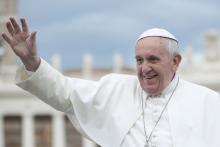
Pope Francis reinforced his radical reshaping of the Catholic Church by naming 20 new cardinals from countries as far afield as Ethiopia, Tonga, Thailand, and Panama.
The clerics – who come from 18 different countries – include 15 who are eligible to vote for the pope’s successor in a future conclave, and five retired bishops and archbishops “distinguished for their pastoral charity” who are over age 80 and ineligible to select the next pontiff.
Dissatisfied with the slow pace of change in Rome, Francis’ appointments reflect his desire for “pastors on the front line of difficult situations,” one Vatican observer said, who can bring a new perspective from the often overlooked outposts of global Christianity.
The Vatican’s chief spokesman, the Rev. Federico Lombardi, said the choices showed the pope’s most important criteria was “universality,” and indicated he was not “chained to tradition” as he moves the balance of power at the highest levels of the church closer to the developing world.
It is the first time ever that cardinals have been selected from Tonga, Myanmar, and Cape Verde to become “princes of the church.” There are only five Europeans included among the 15 new electors – two from Italy and three others from Corsica, Spain, and Portugal. The United States was shut out for the second time in a row.

Pope Francis nominated 15 new cardinals Jan. 4 from 14 different nations but leaving several leading U.S. archbishops off the list.
Speaking to a crowd gathered in St. Peter’s Square, the pontiff named each cardinal, noting they came from every continent and “show the indelible tie with the church of Rome to churches in the world.” At least three are from nations that have never had a church member in the role.
Five of the cardinals come from Europe, three from Asia, three from Latin America, and two each from Africa and Oceania.
The nations of Cape Verde, Tonga, and Myanmar received their first cardinals ever, Vatican spokesman Fr. Federico Lombardi said in a statement.
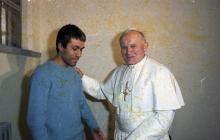
Mehmet Ali Agca, the Turkish man who tried to assassinate St. John Paul II in 1981, was expelled from Italy on December 29 after paying a visit to the tomb of the Polish pontiff.
An Italian judge on Monday approved the expulsion of the former terrorist — he was scheduled to be sent back to Istanbul on a Turkish Airlines flight from Rome Monday night, police sources told the Italian news agency, ANSA.
Agca’s expulsion came two days after he placed flowers on the late pope’s tomb in St. Peter’s Basilica on Saturday.
Agca, 56, served 19 years for his crime in Italy, where John Paul famously visited him in prison. He was then deported to his native Turkey, where he served further time for the murder of left-wing journalist Abdi Ipekci, who was killed in 1979.

VATICAN CITY — Pope Francis launched a blistering attack on the Vatican bureaucracy on Monday, outlining a “catalog of illnesses” that plague the church’s central administration, including “spiritual Alzheimer’s” and gossipy cliques.
The pope’s traditional Christmas greeting to the cardinals, bishops and priests who run the Holy See was more “Bah! Humbug!” than holiday cheer as he ticked off a laundry list of “ailments of the Curia” that he wants to cure.
In a critique that left many of the assembled clerics clearly uncomfortable, the 15 ailments in Francis’ “catalog of illnesses” reflected the take-no-prisoners approach he promised when he was elected nearly two years ago as an outsider with little direct experience in Rome.
“The Curia is called upon to improve itself, always improve itself and grow in communion, holiness and knowledge to fully realize its mission,” the pope said.
“Yet like every body, like every human body, it is exposed to illnesses, malfunctioning, infirmity. They are illnesses and temptations that weaken our service to God.”
In a separate address to Vatican staff later, Francis begged pardon for the “shortcomings” of senior church leaders, as well as the “several scandals” that had “caused so much harm,” without specifying which scandals he had in mind.

Last week the Vatican released the final report on its unprecedented investigation of Roman Catholic sisters in the United States. Six years ago, when the Vatican announced the apostolic visitation (its formal name), many of the sisters whom the investigation affected responded with hurt and anger. Now, thanks largely to competent, spiritually grounded leadership on the part of American sisters, the spirit is conciliatory.
When the Vatican launched the investigation in 2008, under Pope Benedict, to “look into the quality of life of religious women in the United States,” the announcement was met with suspicion and apprehension. Since the Vatican had previously only ordered an apostolic visitation when a group had gone astray, sisters wondered what the Vatican wanted to investigate and why. Some congregations reported that their elder sisters felt that their whole lives had been judged and found wanting," remembers Sr. Sharon Holland, president of the Leadership Council of Women Religious, which represents about 80 percent of the 57,000 nuns in the U. S. When Sr. Sandra Schneiders, professor emerita of New Testament and spirituality at the Jesuit School of Theology in Berkeley, Calif., learned of the visitation, she warned sisters to be cautious, treating the visitors as “uninvited guests who should be received in the parlor, not given the run of the house.”
In a situation that could have escalated badly, American sisters rose to the occasion.
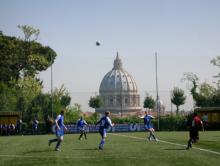
Major sporting events could be held at the Vatican if Rome wins its bid to host the Summer Olympics in 2024.
Pope Francis, a keen soccer fan, is reported to be enthusiastic about the idea. He is expected to meet the head of Italy’s National Olympic Committee, Giovanni Malago, and other officials at the Vatican on Dec. 19 after a Mass to commemorate the committee’s 100th anniversary
Cardinal Jose Saraiva Martins, former head of the Congregation for the Causes of Saints, said he believed Francis would back plans to hold events such as archery in the Vatican gardens.
He told the Florence daily La Nazione that events could also be staged at the pope’s summer palace at Castel Gandolfo outside Rome.
“It seems like a good idea, I think the pope will approve,” Saraiva Martins said.
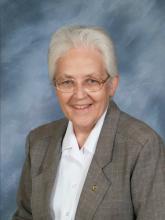
The moment was more “Kumbaya” than “Come to Jesus” on Dec. 16 as the Vatican released the much-anticipated results of an investigation of women’s religious communities in the U.S., the first of two controversial investigations of American nuns by the Roman Curia.
The 5,200-word report was largely positive, and participants at a Vatican news conference were even more effusive in their praise for each other, the process, the outcome, and prospects for future collaboration to meet serious challenges. That was a big change from how things started six years ago.
So what did we learn from this whole saga? Here are three takeaways:
1. Rome’s “War on Women” is over
“It is not a truce,” Sister Sharon Holland of the Leadership Conference of Women Religious, the main network of U.S. nuns, told reporters in Rome. “We are not at war.”

The much anticipated final report of a Vatican-ordered investigation of U.S. nuns was released today without controversy. The report ends a process launched six years ago under Pope Benedict XVI through the leadership of Cardinal Franc Rodé, the former head of the Vatican office of religious life, who raised concerns of “secular mentality" and a "feminist spirit" among U.S. women religious communities.
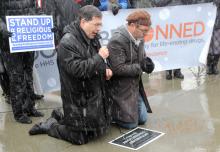
In the latest clash between the Catholic hierarchy and one of the church’s leading anti-abortion crusaders, New York Cardinal Timothy Dolan accused the Rev. Frank Pavone of continuing to stonewall on financial reforms, and Dolan said he is cutting ties with his group, Priests for Life.
In a Nov. 20 letter to other U.S. bishops, Dolan said he did not know if the Vatican would now step in to take action against the New York-based priest, who for years has angered various bishops by rejecting oversight of the organization by church authorities and for refusing to sort out his group’s troubled finances.
“My requests of Father Pavone were clear and simple: one, that Priests for Life undergo a forensic audit; two, that a new, independent board be established to provide oversight and accountability,” Dolan wrote in the letter, which was first reported by Catholic World News.
“Although Father Pavone initially assured me of his support, he did not cooperate. Frequent requests that he do so went unheeded. I finally asked him to comply by October 1st. He did not,” Dolan wrote.
Dolan, who had been asked by the Vatican to help Pavone restructure Priests for Life, said in the letter that he has informed Rome that “I am unable to fulfill their mandate, and want nothing further to do with the organization.”

The Vatican announced Dec. 11 that Pope Francis will name a new batch of cardinals in February, adding to the select group of churchmen who will someday gather to elect his successor.
Rome won’t reveal the names until next month, but could an American be among them?
There are a number of factors that will govern the choices, and thus the predictions:
First, there are 208 cardinals in the College of Cardinals, but at the age of 80 a cardinal is no longer allowed to vote in a conclave. That leaves 112 cardinals under the age of 80, as of now, though two more will age out in February and another two in March and April.
The customary ceiling on the number of electors today is 120 (it has changed many times over the centuries). That means that Francis could give a so-called red hat to 10 or 12 bishops.
The pope could also raise the ceiling, or ignore it, as Saint John Paul II often did during his long reign.
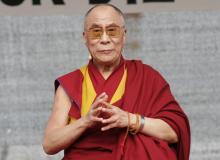
The Dalai Lama said Dec. 11 that he would not meet Pope Francis while in Rome for a summit of Nobel Peace Prize winners.
“The Vatican administration says it is not possible because it could cause problems,” the Dalai Lama said, hinting that the Vatican may be unwilling to irk China, a country with which it wants to engage and perhaps re-establish diplomatic relations.
But the Vatican’s chief spokesman, the Rev. Federico Lombardi, declined to say whether the pope had personally turned down a request for a meeting with the spiritual leader of the Tibetan Buddhists.
“Pope Francis obviously holds the Dalai Lama in very high regard, but he will not be meeting any of the Nobel laureates,” Lombardi told journalists.

When Pope Francis this month wanted to highlight his appointment of several women to a blue-ribbon theological commission, he called the female theologians “strawberries on the cake.”
Yikes.
Two weeks earlier, when the pontiff gave a speech to the European Parliament, he used another lady-based analogy, this time underscoring the continent’s demographic decline and cultural crisis by comparing Europe to a grandmother who is “no longer fertile and vibrant.”
Ouch.
Yes, Francis is a veritable quote machine, tossing off-the-cuff bon mots that the public finds enormously appealing in large part because they are coming from a Roman pontiff — not an office known for its improv routines.
But when he speaks about women, Francis can sound a lot like the (almost) 78-year-old Argentine churchman that he is, using analogies that sound alternately condescending and impolitic, even if well-intentioned.

This week, at a conference in Vienna, Austria on the humanitarian impact of nuclear weapons, Pope Francis issued a statement declaring that "nuclear deterrence cannot be the basis for peaceful coexistence between states."
A Vatican official told Sojourners in Vienna that the Holy See is seriously discussing whether the possession of nuclear weapons can be morally justified in our current multipolar world. The official quoted Pope John XXIII, who said "Nuclear weapons should be banned," and said that the time has come to embrace nuclear abolition.
The Vatican statement, titled "Nuclear Disarmament: Time for Abolition," argued that "the structure of nuclear deterrence is less stable and more worrisome than at the height of the Cold War," and said that "the very possession of nuclear weapons, even for purposes of deterrence, is morally problematic."
Since the beginning of the Cold War in the aftermath of World War II, the fundamental moral rationale for the possession of nuclear weapons has been the concept of deterrence. Simply put, the threat of massive annihilation rendered these weapons unusable — the very threat of such unacceptable destruction would, in theory, deter their use.

Was there a secret plot to elect Cardinal Jorge Mario Bergoglio at the papal conclave last year?
Did Bergoglio — who became Pope Francis at that conclave — give the go-ahead to such a plan?
And does that campaign call his election, and his papacy, into question?
Such questions might sound like plot twists to a new Vatican thriller by Dan Brown, but they are actually the latest talking points promoted by some Catholic conservatives upset with the direction that Francis is leading the church.
The furor stems from a behind-the-scenes account of the March 2013 conclave, presented in a new book about Francis titled “The Great Reformer: Francis and the Making of a Radical Pope.”
In the last chapter of the biography, which focuses on Bergoglio’s early life in Argentina and career as a Jesuit, author Austen Ivereigh delivers an insider account of how a group of cardinals who wanted a reformer pope quietly sought to rally support for Bergoglio in the days leading up to the conclave.

Never mind that Turkey is overwhelmingly Muslim. The most enduring image of Pope Francis’ three-day visit to Turkey was the moment when he bowed his head and asked for the blessing of the leader of Eastern Orthodoxy, Ecumenical Patriarch Bartholomew I.
Since his election last year, Francis and Bartholomew have forged a strong alliance culminating in their joint pledge in Istanbul on Nov. 30 to work to bridge a 1,000-year divide between their churches.
The task takes on new urgency as Christians — Catholic, Protestant and Orthodox — face a wave of violent persecution in Syria and Iraq.
The 77-year-old Argentinian pope represents 1.2 billion Roman Catholics and the Turkish-born Bartholomew leads about 250 million Eastern Orthodox Christians.
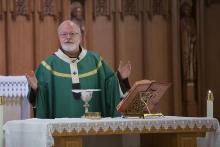
Following up on remarks to “60 Minutes” about the clergy sex abuse crisis and other controversial topics, Boston Cardinal Sean O’Malley has stressed that the Catholic Church needs a system to hold bishops accountable and must “avoid crowd-based condemnations.”
“We are all aware that Catholics want their leaders to be held accountable for the safety of children, but the accountability has been sporadic,” O’Malley wrote in a column posted Nov. 19 at the website of the archdiocesan newspaper. “We need clear protocols that will replace the improvisation and inertia that has often been the response in these matters.”
“Bishops also deserve due process that allows them to have an opportunity for a fair hearing,” he added.
O’Malley’s column was responding to both praise and criticism of his CBS interview broadcast Nov. 16 in which he said the Vatican needs to respond “urgently” to cases like that of Missouri Bishop Robert Finn, who remains in office despite a conviction in 2012 for failure to report concerns about a priest, the Rev. Shawn Ratigan, who was later convicted of federal child pornography charges.
The cardinal said Francis, who recently sent a Canadian archbishop to Finn’s diocese to investigate, was personally aware of the situation.
In the “60 Minutes” interview, O’Malley also called the Vatican’s investigation of American nuns a “disaster” and said if he were starting a church “I’d love to have women priests,” but he added that’s not what Jesus did. Both comments sparked strong reactions.
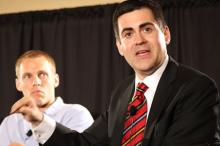
Prominent U.S. evangelicals Russell Moore and Rick Warren blasted the sexual revolution at a Vatican conference Nov. 18 and said it is destroying the institution of marriage.
Moore, the public face of the Southern Baptist Convention, said sexual liberation had created “a culture obsessed with sex” that had simply led to a “boredom of sex shorn of mystery.”
“Western culture now celebrates casual sexuality, cohabitation, no-fault divorce, family redefinition and abortion right as part of a sexual revolution that can tear down old patriarchal systems,” Moore told a global gathering of leaders from Catholic, Jewish, Muslim, and other faiths as part of the “Complementarity of Man and Woman” conference convened by Pope Francis.
The Southern Baptist ethicist said the sexual revolution appeared to have imposed a new patriarchy that enabled men to “pursue a Darwinian fantasy of the predatory alpha male” for the pursuit of “power, prestige, and personal pleasure.”
“Does anyone really believe these things will empower women and children?” he asked. “We see the wreckage of sexuality as self-expression all around us, and we will see more yet.”
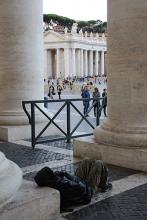
In his latest bid to ease the suffering of the poor — and upend the expectations of the papacy — Pope Francis plans to build showers for the homeless under the sweeping white colonnade of St. Peter’s Square.
Three showers are to be built into refurbished public restrooms provided for Catholic pilgrims along the marble columns leading into the historic basilica, which was completed in 1626.
The Vatican’s deputy spokesman, the Rev. Ciro Benedettini, said Nov. 13 that the project was a joint initiative of the pope and Archbishop Konrad Krajewski, the papal almoner who distributes charity on the pope’s behalf. Construction is due to begin Nov. 17.
It’s an unconventional move, even for a pope who constantly preaches that more should be done to help the poor. It also could rankle traditionalists as the homeless line up to wash beneath the extravagant apostolic apartments that Francis shunned after his election.
“I think it’s a good thing,” said Adrian Sztrajt, a 27-year-old homeless man from the Polish city of Chelm. “I would like to go for showers there.”
Sztrajt and his companion Grzegorz Bialas, also from Poland, sleep with half a dozen others under the porticoes in front of the Vatican press office beside St. Peter’s Square.
Bialas said he’s a fan of the pope but thinks the showers are “a bad idea” since they could attract hundreds of homeless to the Vatican. He also said it was possible for the homeless to get a shower elsewhere in Rome.
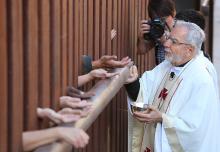
The nation’s Catholic bishops are jumping into the increasingly contentious battle over immigration reform by backing President Obama’s pledge to act on his own to fix what one bishop called “this broken and immoral system” before Republicans assume control of Capitol Hill in January.
In an unscheduled address Nov. 11 at the hierarchy’s annual meeting, Seattle Auxiliary Bishop Eusebio Elizondo, chairman of the migration committee of the U.S. Conference of Catholic Bishops, said the USCCB would continue to work with both parties to pass comprehensive immigration reform.
But, Elizondo said, given the urgency of the immigration crisis and the electoral gains by Republicans who have thwarted earlier reform efforts, “it would be derelict not to support administrative actions … which would provide immigrants and their families legal protection.”
“We are not guided by the latest headlines but by the human tragedies that we see every day in our parishes and programs, where families are torn apart by enforcement actions especially,” he said.
During the summer, the president was moving toward unilateral action on immigration, despite warnings that such moves could exceed his constitutional authority or would turn voters against reform.
Then in early September, Obama said he would delay acting on his own, a move that was seen as a way to protect vulnerable Democrats from any backlash in midterm elections. On Sunday, Obama told CBS’ “Face the Nation” that he was now “going to do what I can do through executive action.”
“It’s not going to be everything that needs to get done. And it will take time to put that in place,” he said.

Pope Francis on Nov. 11 created a new Vatican body to deal with the most serious cases of child sexual abuse and to streamline complaints against the clergy.
The Vatican said the pope would nominate seven cardinals or bishops to consider appeals from clergy accused of abusing minors in a bid to speed up the judicial process of clergy who have received an initial assessment by local bishops.
The members of the panel, or “college,” may come from the Congregation for the Doctrine of the Faith, which currently handles cases, or elsewhere in the church. Members will also be asked to deal with serious abuses of penance in the confessional.
The Vatican’s chief spokesman, the Rev. Federico Lombardi, called the pope’s proposal a “good solution” to help alleviate a backlog of cases.
Bishops accused of sexually abusing minors will still have their appeals handled by a session of CDF members at their monthly meetings.
“This is a good sign Francis is giving: He is basically saying that the CDF remains competent, and gives them an extra instrument to promptly deal with a specific type of appeals against decisions, namely recourses against administrative decrees,” said Kurt Martens, a canon law expert at Catholic University in Washington.
The immediate changes were outlined in a papal rescript, or “Rescriptum,” signed by the Vatican secretary of state, Cardinal Pietro Parolin, and printed in L’Osservatore Romano, the Vatican’s official newspaper.
The pope has adopted a hard line on clerical sex abuse and at times asked for forgiveness while lambasting church leaders more than once for protecting abusers.